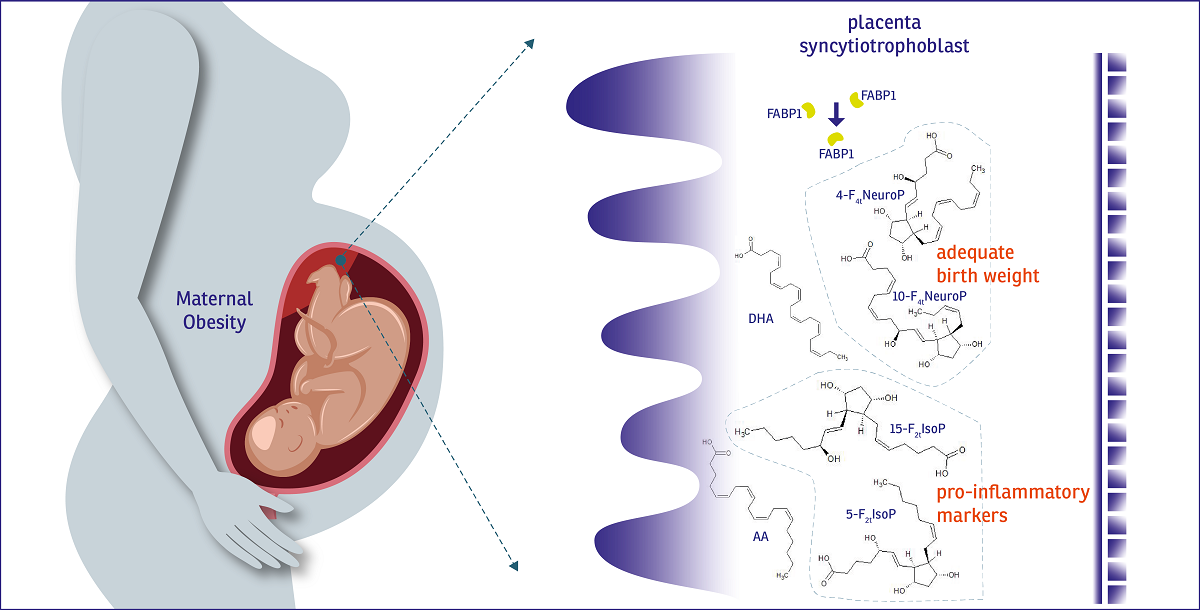The rise in prevalence of obesity in women of reproductive age in both developed and developing countries might propagate intergenerational cycles of detrimental effects on metabolic health, contributing to substantial economic burden on society. Placental lipid metabolism might be disrupted by maternal obesity, which possibly affects the life-long health of the offspring. Here, we investigated placental lipid metabolism and handling from women with pre-gestational obesity as a sole pregnancy complication and compared to placental responses of lean women. Open profile and targeted lipidomics were used to assess placental lipids and oxidized products of docosahexahenoic acid (DHA), neuroprostanes, and arachidonic acid (AA), isoprostanes. Placental fatty acid transporters FABP1, FABP3 and endothelial lipase protein were measured. Despite no signs of overall alterations in lipid content, increased contents of DHA, AA, DHA-derived neuroprostanes and AA-derived isoprostanes and decreased content of FABP1 protein were found in placentas from obese women. Multivariate analyses suggested that these oxidised fatty acids are associated with maternal and placental inflammation and also with birth weight. These results might shed light on the molecular mechanisms associated with altered fatty acid metabolism and lipid handling in maternal pre-gestational obesity, placing these oxidized fatty acids as novel mediators of placental function.

